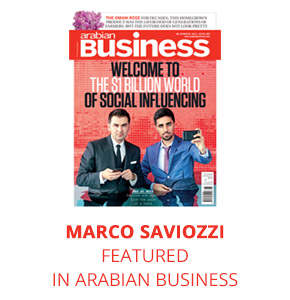What makes a good broker? To get the edge, in a career that you’ll quickly realise is ultra-competitive, you need to be tough, ambitious and determined.
But that’s also true of many other challenging work environments you might find yourself in. So, specifically, what is it that makes a successful financial broker?
When I was starting out on my career I didn’t have a set recipe for success. But looking back I’ve been fortunate enough to realise my ambitions and reach some pinnacles along the way. Here are a few things that, from my experience, it’s advisable to have in your arsenal to increase your chances of success.
Be grounded and upfront about the industry’s problems
If you’re fresh in to the finance industry, you might be keen to hold on to a rose-tinted view about it. But one of the biggest problems that people working in financial services today face is the high level of public mistrust that’s built up over the last decade. Across the globe the financial crisis has caused damage to the real economy in unprecedented ways, and not surprisingly public trust in financial services today remains low, 30% below pre-crisis levels. There’s a long way to go before trust in our industry is fully restored.
Showing awareness of this is essential for the modern financial broker. Burying our head in the sand hasn’t worked, and it’s time for a different approach. For a financial professional, money is often just another set of numbers, but for people in the real world it’s more than that.
Showing awareness of this is essential for the modern financial broker. Burying our head in the sand hasn’t worked, and it’s time for a different approach.
So what can you do to help restore faith? In my view, one key thing is to level with your clients. As finance professionals in the present climate, we can no longer simply sweep their mistrust under the rug. We have to tackle it head on, and show a grounded attitude that’s mindful of the environment we’re working in, and the need for good conduct and a good culture. If we can do this while simultaneously embodying the many good features of our industry, we can help circumnavigate our clients’ understandable mistrust.
Later on we’ll talk about some other ways to build trust with your client. But for me this element – displaying an understanding of any misgivings they may have and being completely open about the issue – will go a long way to establishing you as a trustworthy person in your clients’ eyes.

Step back to look forward
Making accurate market assessments is an inherent part of the financial broker’s skill set. Yes, we have complex software based on cutting edge algorithms to help us, but to really make it far in this business, there’s no substitute for good instincts.
But what defines good instincts? There’s a perception that brokers have to maintain huge levels of confidence at all times. Being confident is one thing, but there’s a tendency for this trait to be exaggerated to harmful proportions. I would always advise newcomers to the industry not to be taken in by that particular hype.
Some studies have found that overconfidence increases the levels of risk that financial professionals take, at the same time that their perception of risk is less than it should be. In our industry, confidence is assumed as a default: it’s relied on too much. If you want to differentiate yourself and stand out in a crowd, you would be best served taking a step back, moderating the confident exterior, and taking the time to think ahead about how you might succeed where others fail.
Learning to decode the prediction-making language of the financial press will take you a step closer to becoming an insightful broker. To maintain balance in their reporting, journalists often seek to present counter-arguments to their main point, framing their articles as reasoned argumentation rather than advice or a polemical view. Learning how to judge when a journalist is making a real actionable point or unearthing market-relevant information, rather than just presenting counter-arguments for the sake of balance, will help you gain more value out of the material you read.
Learning to decode the prediction-making language of the financial press will take you a step closer to becoming an insightful broker.
Overcome barriers by removing your own
Earlier, we looked at how to build the foundations of client trust by establishing more honesty around the issues in the industry. That’s important, but it’s not enough. So how do you build on those foundations?
One thing you always have to be, if you want to make it as a financial broker, is available. Always being accessible to your clients will go a long way to earning their trust. When the phone rings, whatever you’re doing at the time, answer it. However busy you are when you get an email, reply. This may seem like basic client management, but in the UAE this dynamic has an even more powerful part to play.
A 2016 study on B2B supplier-customer relationships in the finance sector made some interesting discoveries about the differences between Emirati and non-Emirati trust patterns. For Emiratis, mutual trust is substantially based on family and clan ties and exhibits strongly affective characteristics. For non-Emiratis, trust is largely based on business considerations, and exhibits strongly cognitive characteristics.
Short of being family, to impress an Emirati client and win their trust you need to really up your game. Do this by putting in the groundwork, and being prepared to answer questions they may have at short notice. High accessibility and strong preparation hold the key.
Quick detailed decisions
It’s a fast-moving world we work in, and it’s essential to understand the relationship between quick decision-making skills and success.
Being able to make fast decisions relays confidence. Studies have found that people who act quickly on a moral decision are viewed in a more positive moral light, on the grounds that their decision reflects a high degree of certainty. Yet earlier we discussed some of the pitfalls of overconfidence. So what do we do to ensure that our decision-making skills aren’t affected by overconfidence, and instead reap the rewards of perceived certainty?

The answer, as with many things in the financial broker industry, is hard work. People who make fast decisions in high-pressure environments actually do so with more information, not less, than those who make slower decisions. Quick-movers are also more likely to develop a multi-tier approach, with different options to follow based on changing factors. They are also more likely to develop tactical plans, and to ensure that their rapid decisions tie in with larger strategic decisions. All these things, combined with good conflict resolution skills, are a feature of strong work performance.
Develop these habits and you’ll soon find yourself making fast decisions with confidence, based on more than your gut instinct alone.
Dress for your industry
You are what you wear. Or are you? Earlier we talked about moving away from certain stereotypes that surround financial brokers, including overconfidence. So why is it important to maintain a certain look, given that is a concept which has been eroding in many industries over the past decade?
The fact is that perceptions in the workplace are still greatly affected by the way you dress. Competence, authoritativeness, trustworthiness, and productivity all rate most highly in business casual and formal business dress codes. These are all qualities a successful broker needs to display, and you’ll find this perception rings especially true in the UAE.
Competence, authoritativeness, trustworthiness and productivity all rate most highly in business casual and formal business dress codes.
Allocentric action will expand your influence
In any industry where you are servicing the needs of clients, you have to tread a careful line between focusing on the needs of your own business against those of your clients.
Clients come to you to further their own agendas, to help them become a success. The way to stay firmly in their mind as someone they can rely on at all times is remembering to always frame their needs at the forefront of everything you do. As well as building a repertoire of clients who find you reliable and trustworthy, good customer service will even have a positive effect on their profitability.
The key to achieving these aims is to be ‘allocentric’ – to have your interest and attention centred on other people. It’s another departure from the cliché of the overconfident broker, making sure you find a good balance between getting credit for your work and maintaining client focus. Re-framing your achievements demonstrates to your client that working with you brings them success, thus making them keen to work with you, bringing them more success and more profitability; and so on.
No substitute for work
If you can put all of these behaviours together, you could become a formidable financial broker. But the key is to realise that it won’t all click immediately. What underpins everything we’ve talked about is hard work. Build your skills. Forge your client relationships. Always be ready to learn. Most of all, work really hard at it. It’s a tough, competitive industry, but the rewards of cracking it are immense.
About the author: Marco Saviozzi, CEO
Marco attained an MBA in Finance from the IEMI, Geneve, before starting his career in corporate sales at Xerox. He would eventually move on to French firm Viel (now Tradition), before being headhunted by prestigious London firm ICAP, where he was brought in as head of the French Franc IRS Desk. He quickly rose to become a part of the management committee as Co-Head of the Euro Desk, and later moved to the New York office to head up the Equity Derivatives team. After 14 years at ICAP, in 2007, he opened Newedge – a Calyon / Societe Generale brokerage arm in Dubai. Two years later he would go on to form GMG as a co-founder with several past colleagues. When he is not facilitating trades on behalf of clients, Marco can be found on the golf course or watching his favourites sports – Formula 1 and horse racing.


